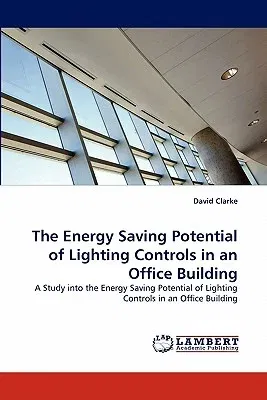David Clarke
(Author)The Energy Saving Potential of Lighting Controls in an Office BuildingPaperback, 3 March 2011

Qty
1
Turbo
Ships in 2 - 3 days
In Stock
Free Delivery
Cash on Delivery
15 Days
Free Returns
Secure Checkout
Print Length
64 pages
Language
English
Publisher
LAP Lambert Academic Publishing
Date Published
3 Mar 2011
ISBN-10
384337094X
ISBN-13
9783843370943
Description
Product Details
Author:
Book Format:
Paperback
Country of Origin:
US
Date Published:
3 March 2011
Dimensions:
22.86 x
15.24 x
0.38 cm
ISBN-10:
384337094X
ISBN-13:
9783843370943
Language:
English
Location:
Saarbrucken
Pages:
64
Publisher:
Weight:
104.33 gm

